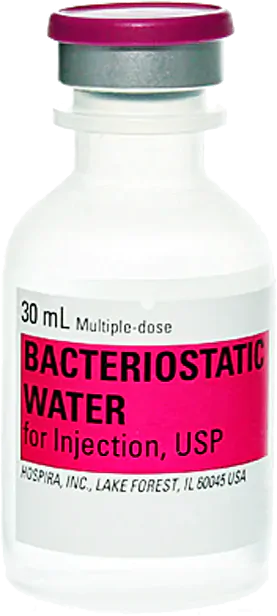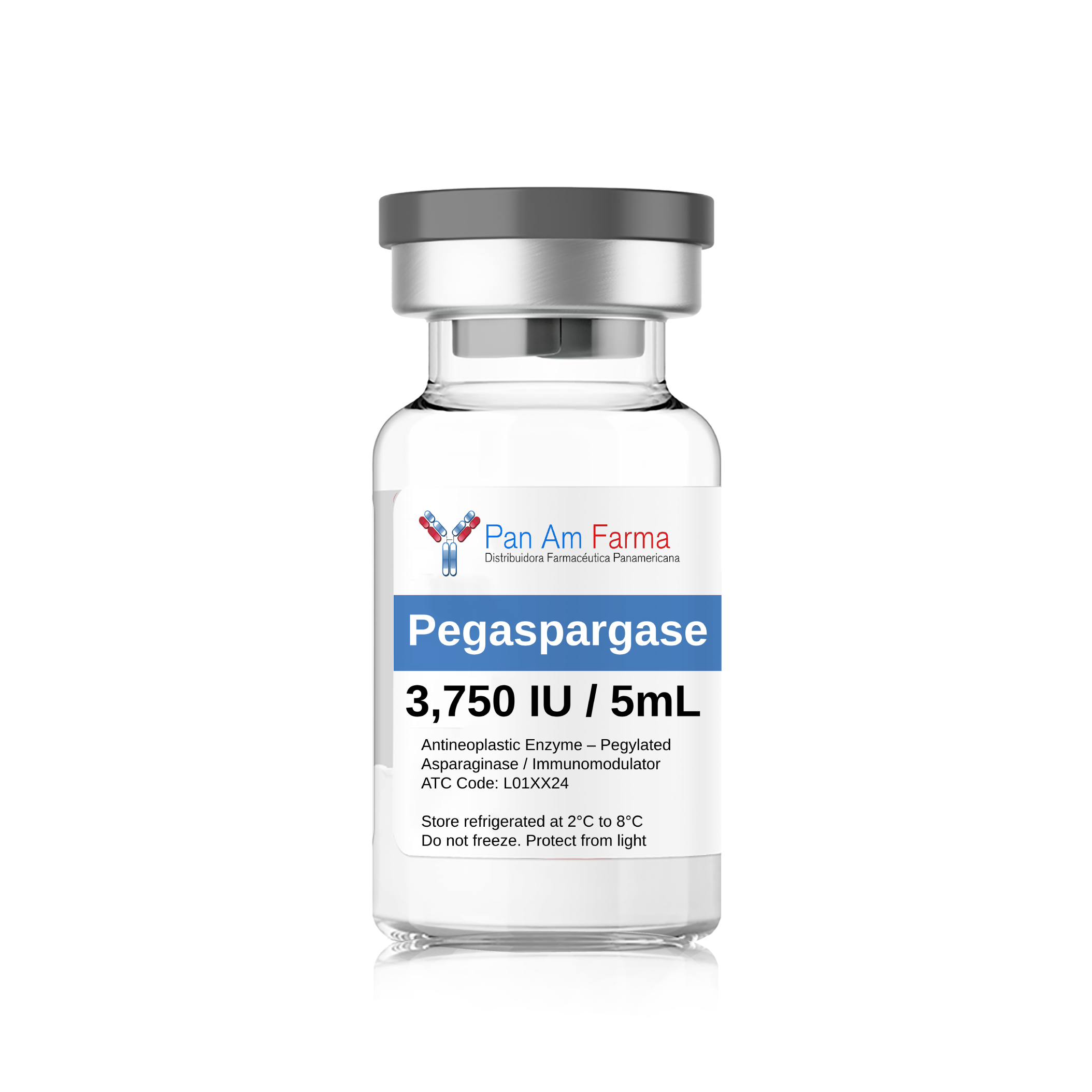Pegaspargase 3,750 IU Injection
Si Disponible: Dispensado al Día Siguiente
Envío Gratis
Dentro de México

Requiere Receta Médica
Este Medicamento requiere prescripción médica de su médico, clínica, hospital o terapeuta.
Description
Pegaspargase 3,750 IU Injection
Antineoplastic Enzyme – Pegylated Asparaginase / Immunomodulator
ATC Code: L01XX24
WHO Essential Medicines List: ✔️ Yes
Phonetic Pronunciation
/ˌpɛɡ.əsˈpɑːr.ɡeɪz/ — PEG-us-PAR-gaze
Product Description
Pegaspargase is a pegylated form of L-asparaginase, an antineoplastic enzyme used in the treatment of acute lymphoblastic leukemia (ALL). It catalyzes the hydrolysis of circulating L-asparagine, an amino acid essential for the survival of leukemic lymphoblasts. By depleting plasma asparagine, pegaspargase inhibits protein synthesis and induces apoptosis in malignant lymphocytes.
Pegylation of the asparaginase enzyme extends its half-life, reduces immunogenicity, and allows for less frequent dosing, improving tolerability and compliance in both pediatric and adult oncology protocols.
Available Presentation
- Strength per vial: 3,750 International Units (IU)
- Formulation: Sterile injectable solution
- Volume per vial: 5 mL
- Concentration: 750 IU/mL
- Dilution Required: ❌ No
- Packaging: Type I glass single-use vial with carton
- Storage: Store refrigerated at 2°C to 8°C. Do not freeze. Protect from light.
Indications
- First-line and relapsed treatment of acute lymphoblastic leukemia (ALL)
- For use in pediatric, adolescent, and adult patients
Uses
- Primary Use: Oncology – Hematologic malignancies
- Cancer Type: Acute lymphoblastic leukemia (T-cell or B-cell origin)
- Protocol Role: Induction and consolidation phases
- Used in pediatric and AYA protocols (e.g., COG, DFCI)
Off-label / Investigational Uses
- Acute myeloid leukemia (select protocols)
- Non-Hodgkin lymphoma (rare pediatric settings)
- Reinduction in relapsed ALL
Pediatric Use
✔️ Widely used in pediatric oncology. Dosage is based on body surface area (IU/m²). Safety and efficacy well documented in children.
Regulatory and Safety Profile
- ATC Code: L01XX24
- WHO Essential Medicines List: ✔️ Yes
- Pharmacologic Class: Antineoplastic / Enzymatic agent
- Black Box Warning (U.S. FDA): ✔️ Yes
- Hypersensitivity reactions, including anaphylaxis
- Pancreatitis
- Coagulopathy and thrombosis
- Hepatotoxicity
Contraindications
- Severe hypersensitivity to pegaspargase or L-asparaginase
- History of pancreatitis
- Severe hepatic impairment
- Active hemorrhagic or thrombotic events
Common Side Effects
- Hypersensitivity (rash, fever, anaphylaxis)
- Hyperglycemia
- Pancreatitis
- Coagulopathy (bleeding or thrombotic events)
- Elevated liver enzymes and bilirubin
- Fatigue, nausea, vomiting
Monitoring Parameters
- Liver function tests (AST, ALT, bilirubin)
- Serum amylase and lipase
- Blood glucose levels
- Coagulation profile (PT, aPTT, fibrinogen)
- Complete blood count with differential
- Clinical observation for hypersensitivity reactions
For wholesale pricing, Certificate of Analysis (COA) requests, or oncology supply chain support, please contact us at: info@panamfarma.com


